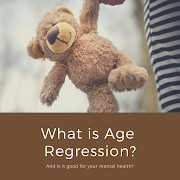Ciao lovelies! Have you ever felt “weird”? What about “out-of-place,”
or maybe unaccepted for who you are? Do you ever hide your true self or feel
the need to be “Someone else”? Do you have lower self-esteem and trouble
accepting who you are? If any of these are true for you, I’m writing to you today.
I have lots of issues with self-esteem and self-acceptance. Often,
I label my actions as weird or “Not normal.” I feel like an outsider with every
group, except my closest friends. In many interactions with others I hide who I
really am or I try to “act normal.” Key aspects of my personality get hidden so
I can seem more “cool” or “normal.” But this just becomes a vicious cycle. Have
an interaction and “act normal,” then I end up over-analyzing and thinking that
I’m not “normal” enough, then I criticize myself for what I did, then in the
next interaction, I’m trying harder to “act normal”…. And the cycle repeats.
Does this cycle seem familiar to you?
Many people worldwide suffer from low self-esteem, and lack of
self-acceptance. Accepting yourself for who you are can be hard. It requires a
lot of self-reflection, and even therapy. It’s a bumpy road and it’s not easy
to travel.
Today I want to talk about some ways you can start your self-acceptance
journey. The ways I’ll be talking about today are affirmations, recognizing and
correcting negative ruminations, and, lastly, recognizing the difference
between constructive critique and harmful insults.
DISCLAIMER
** DISCLAIMER: I am not
a mental health professional and all things mentioned in this post come from personal
experience or things I learned in classes. Please note that I am not the expert
on these topics and cannot “Fix” what you are experiencing personally. **
AFFIRMATIONS
First, let’s talk affirmations. How often do you self-affirm?
Answer this honestly. How many times per day do you praise yourself, for things
you’ve done well, or maybe just think something kind about yourself (that’s NOT
reactionary, meaning you think these kind things about yourself without being
forced to).
If I’m answering honestly, I do not self-affirm very often.
I can’t even say that I do it more than once a day, if that. This is a big
issue and contributor to my lack of self-esteem. How can I have self-esteem if
I’m not even cheering myself on?
When I say that you should self-affirm, I’m not saying that
you have to constantly think that you’re the best thing ever. I’m not saying
that you should think that you can “do-no-wrong” sort of thing.
When I refer to “Affirmations,” it’s easiest to start fairly
small. A very good way to start is to find at least one thing about your physicality
that you like. This can be anything from your eye color, to the way your nose
is shaped, to the way your teeth look when you smile. Anything at all, just
find one thing that you like about your physical self.
Then, bump it up. You may want to take this one day at a time,
if this is uncomfortable for you. Here is the plan I want to accomplish this
week, you may like this, or you may want to change it for you.
My Affirmations Plan for this Week:
Monday: Affirm one aspect of my physical appearance.
Tuesday: Affirm one aspect of my physical appearance and one
aspect of my personality.
Wednesday: Work on criticizing myself less today. If I catch
myself criticizing, replace with a statement reflecting what I did right along
with what I can work on.
Thursday: Affirm two aspects of my personality.
Friday: Reflect, at the end of the day, on two or three
things I did well that day.
Saturday: Affirm one aspect of my personality, one aspect of
my physical appearance and recognize one thing I did right today.
Sunday: Affirm one aspect of my personality, one aspect of
my physical appearance and recognize 4 things I did right this week.
These don’t sound too bad to me and I feel that this is a good
place to start.
RECOGNIZING AND CORRECTING NEGATIVE RUMINATIONS
Now let’s talk about recognizing and correcting negative ruminations.
Let’s start by defining Ruminations.
What does it mean to “Ruminate?” According to Merriam-Webster,
to ruminate is to “go over in the mind repeatedly.” Not all ruminations (things
that you constantly run through your head) are negative. But in the case of low
self-esteem, negative ruminations attribute to keeping your self-perception
negative.
Why is it important to recognize negative ruminations? Let’s
say you have an interaction, which should have been a fairly casual one. Say you
said hello to a friend, but they didn’t say hello back. A higher self-esteemed
person would think “maybe they didn’t see me,” but a lower self-esteemed person
would run through the situation in their head over and over, overthinking it,
thinking of everything they did wrong, or every reason why the friend might’ve “ignored”
them- even if none of those reasons were accurate.
If you could recognize that you were in the midst of a negative
rumination cycle, you could work to stop it.
Something you could try is correcting the negative mindset. Take the
example given above. If you were negatively ruminating about that interaction,
and thinking “I bet they hate me now,” how could you correct that thought? I
would remind myself that “maybe they didn’t see me,” or provide context “they
have been busy lately, maybe they weren’t able to stop and chat.” By correcting
the negative rumination cycle, I prevent myself from constantly staying in a negative
mindset, and hopefully provide a positive baseline for any future interactions
like that one.
CONSTRUCTIVE vs HATEFUL
Lastly, let’s talk about how to recognize the difference
between constructive critique and purposeful insults. If you’re wondering why
this topic is in this post, I think it’s very relevant to how self-esteem
works. Those with lower self-esteem seem to be more likely to take even helpful
critique as insult, because they feel that nobody likes them. Therefore, I felt
it was good to have this reminder in this post.
The ways I separate constructive criticism and insult in general
are on 2 baselines: was it intended to hurt me, and does it help me to gain
this knowledge? What I mean by this is going to be highlighted in the example below.
Let’s say a friend has noticed me saying something that is inappropriate,
but I don’t know that it is inappropriate. That friend then brings me aside and
informs me that what I said is inappropriate. They are not intending to hurt my
feelings, and it’s helpful for me to learn this. This would be constructive criticism/critique.
Here is another example. Let’s say a troll online comments
anonymously that “WOW ur face is soo ugly” or something like that. Was it
intended to hurt me? Yes. Does it help me in any way to gain this “knowledge”? No.
Therefore, that is an insult.
Knowing how to determine between the two is great because if
you know it’s an insult, you can sort of…what’s the phrase I’m looking for…. Let
it roll off your back. This can be hard to do if you have low self-esteem, but now
you know that insults are intended to hurt you, which means usually they’re untrue
and intended only to hurt, and are based in the speaker’s own bias/feelings. Knowing
the untrue nature of insults can help them ease off your shoulders.
OVERALL
Overall, the point I want to make in this post is that it’s
okay to be who you are, and I know that journey can be really hard. But you’re
not alone in making it.
If you like what we do, please follow us on other social media like Facebook, Instagram, Pinterest and YouTube!











2 Comments
Wonderful post as per usual. I've actually added this one to my bookmarks folder ^^
ReplyDeleteThank you very much! I'm so glad that you enjoyed this post! :)
DeleteType your thoughts here!